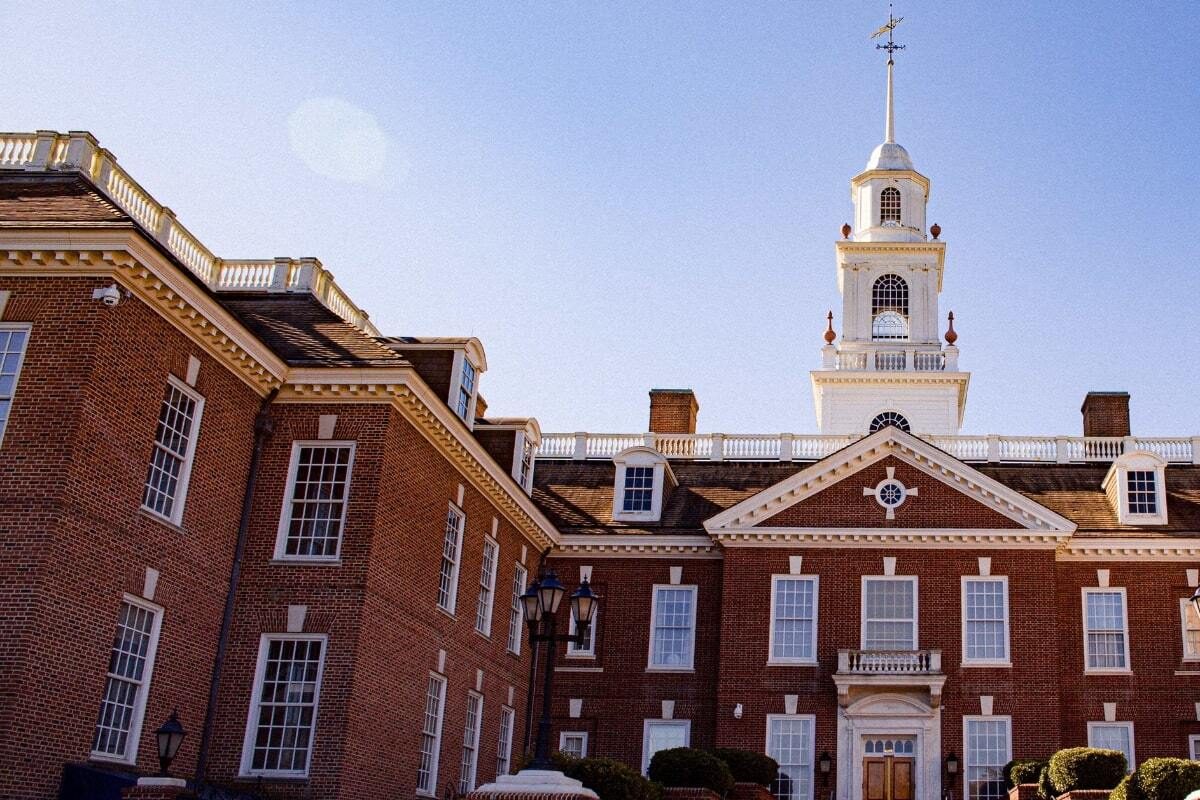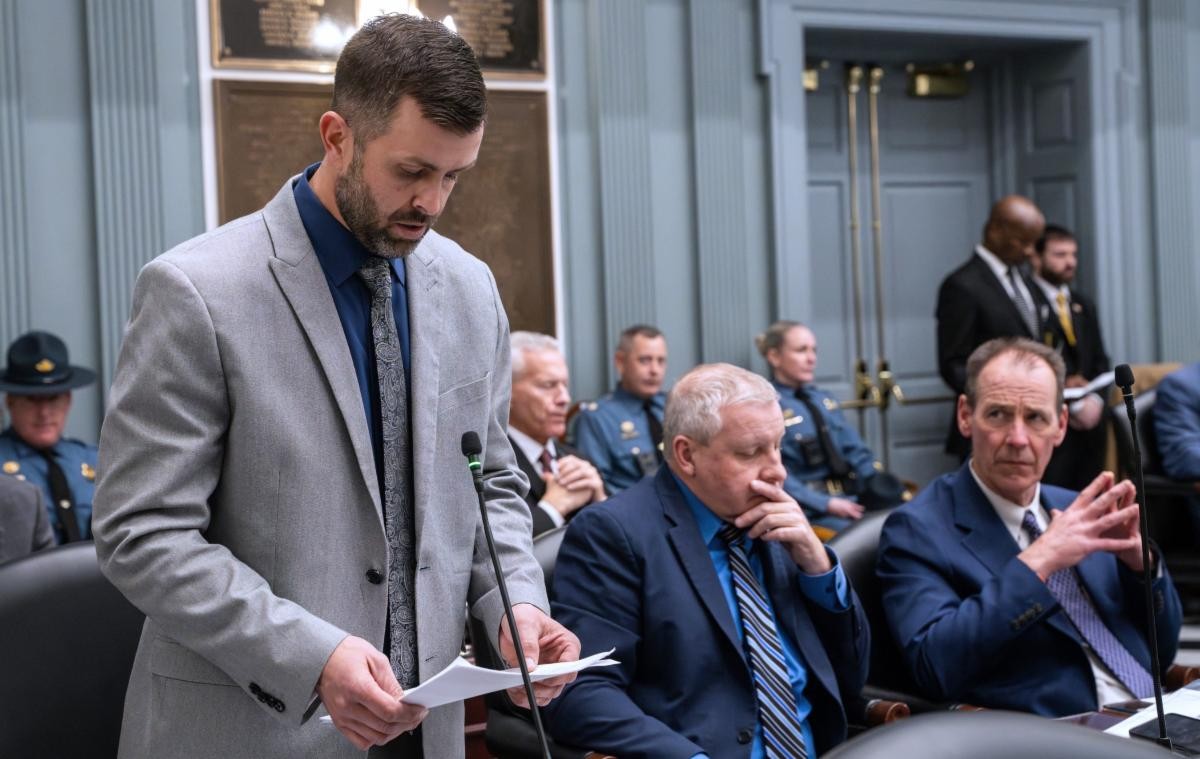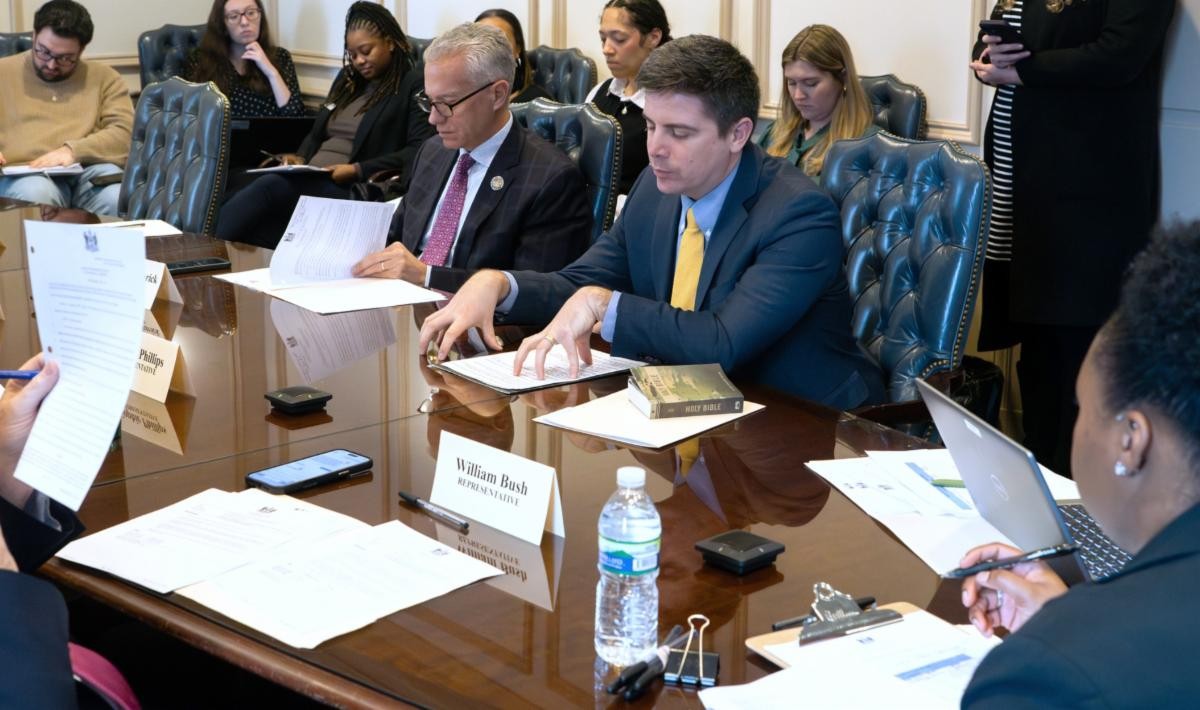Measures to Deal with New Castle County Reassessment Chaos Passed by House and Senate Democrats, Despite Republican Concerns
Bills Fashioned Behind Closed Doors, Without Public Knowledge, Scrutiny, or Input
AUGUST 14, 2025 — The 153rd General Assembly returned for a special session on Tuesday to address mounting concerns surrounding New Castle County property taxes following reassessment.
House and Senate Democrats unilaterally pushed through several of their own measures, over the objections of Republican legislators who noted the bills lacked due process, were not properly vetted, would cause confusion, and held enormous potential for unintended negative consequences.
During the debate, House Democratic leaders stated that they held closed-door conversations with New Castle County officials and the superintendents of the state’s school districts, and that the bills they cobbled together were the result of those discussions.
State House Minority Leader Tim Dukes (R-Laurel) stated that those deliberations did not include House or Senate Republicans, lacked any genuine consensus or transparency, and excluded many stakeholders who could be affected by the measures passed by Democrats.
“Last week, we proposed holding committee meetings to discuss the bills the House Democrats wanted to work on Tuesday,” Rep. Dukes said. We wanted to hold them on Monday or early Tuesday morning, giving citizens a chance to participate and for lawmakers to get some of their questions answered. Even though it would not have delayed the special session, House Democrats rejected even this modest amount of review.
All the bills passed by the House were done “under a suspension of rules,” allowing lawmakers to circumvent procedures requiring due process, public notification, and input.
HOUSE DEMOCRATS ADVANCE THEIR PROPOSALS
The House passed all three Democratic-sponsored measures on its agenda:
House Bill 240 will require the counties to refund to homeowners any overpayment of property taxes of $50 or more following a successful assessment appeal. The requirement would apply to both county taxes and school taxes.
House Bill 241 (with three amendments added Tuesday) — This proposal will require each county, in the year after a reassessment, to allow the payment of county or school taxes under a payment plan for certain residential taxpayers. The mandate would only apply to the primary residence of a taxpayer whose bill had increased by at least $300. Homeowners entering into, and complying with, a payment plan would not be subject to any late fees, interest, or penalties. It also bars New Castle County from taking any action to recover overdue taxes as long as a homeowner is complying with a payment plan. The act would expire, or “sunset,” three years after its enactment.
House Bill 242 with Amendment 1 — This bill is primarily aimed at shifting the tax burden from homeowners to the owners of commercial properties. Due to various factors, commercial property values have declined relative to their value in 1983, when the last assessment was conducted. Meanwhile, home values have risen. The result is that in the most recent reassessment, homeowners are collectively shouldering a greater proportion of the overall property tax liability.
Under this bill, school districts in New Castle County will be allowed to reset their tax rate for the 2025-2026 tax year using a two-tiered tax scale, including a non-residential property tax rate that can be up to twice that applied to homeowners. The deadline for payments would be delayed to November 30, 2025. New Castle County school districts facing a cash flow issue as a result of delayed collections caused by the bill could receive an advance from the state to sustain their operations.
A proposed amendment to the bill, which would have barred manufactured housing community owners from passing any portion of the higher tax bill to residents, was defeated after sharp criticism from House Republicans that it could lead to closures, further exacerbating Delaware’s affordable housing crisis.
BIPARTISAN SENIOR CITIZEN TAX RELIEF REBUFFED
State Rep. Mike Smith asked that rules be suspended to allow action on House Bill 73, a bipartisan bill seeking to increase the senior citizen property tax credit from $500 to $1,000.
In contrast to the bills passed by House Democrats, which were filed last Thursday, this measure was introduced in March and was denied a committee hearing in violation of House Rules. Only three House Democrats joined with Republicans to allow the bill to be considered, falling four votes short of the number needed. Because the state reimburses local school districts for the cost of the tax credits issued, this measure could have provided tax relief to some of Delaware’s most vulnerable older citizens living on fixed incomes, while keeping schools fully financed.
REPUBLICAN BILLS IGNORED
Two bills sponsored by House Republicans that were filed at the same time as the bills worked by Democrats were not allowed to be considered during the special session.
House Bill 245 sought to limit public school tax hikes following a reassessment. Specifically, it would reform an existing law that allows school districts to increase total tax revenues by up to 10% in the year following a reassessment, without a referendum.
House Democratic leaders stated that the bill was too recent to be considered, despite similar versions of this proposal having been filed in both the 151st and 152nd General Assemblies. House Democrats prevented both earlier incarnations of the bill from advancing to the chamber floor for consideration.
The latest version included a new provision to protect school district finances. It would have allowed districts to increase revenue after a reassessment, but the increase would be limited solely to situations where they faced a projected deficit and only to the extent needed to balance the budget. Any potential increase would be capped at 10%, and the schools would have to justify any hike.
House Bill 246 sought to limit the sticker shock of any potential public school property tax revenue hikes after a reassessment. Under the bill, school districts could still have increased total revenue by 10%, but would have been limited to phasing it in over 5 years, at no more than 2% per year. Again, House Democratic leaders balked at the proposal, claiming there was not enough time to evaluate it. Similar levy caps have been employed in numerous states for many years, including neighboring New Jersey.
COMMENTS MADE FROM THE HOUSE FLOOR DURING THE DEBATE
State Rep. Lyndon Yearick: “The most disappointing piece of this for me…is the lack of respect for the institution to honor the process. … What really troubles me the most is the lack of respect for Delawareans and the disservice we’re doing to them today.”
State Rep. Charles Postles: “I think that not having the opportunity for citizens to have access to the committee process to engage in this process more…is a disservice to our citizens of our state, and we are potentially going to be making some decisions that may have long-term unintended consequences. … I’m really disappointed that we’re moving ahead not having answered a number of questions around this issue…and so for that reason I will not be voting on any legislation related to the reassessment.”
State Rep. Jeff Spiegelman: “In a statement made earlier by the leadership, it was said that stakeholders were brought together in order to discuss bills like the one in front of us. The problem is, without a committee system…the stakeholders that were brought together were only those that were allowed by the majority party, by those in majority leadership, rather than a committee system which is open to anybody. In other words, the people in charge of the agenda were also the ones who invited stakeholders to listen to their concerns. This could be why we have so many amendments [offered] for House Bills 241 and 242. … This lack of input silences the public, and it silences minority opinion.”
State Rep. Bryan Shupe: “What I have seen of this process for the last couple of days and also today is nothing short of confusion and chaos. … There is only one thing that can happen today, and that is lawmakers screwing up our tax policy, our economic development, our prospects for jobs, now and in the future. We need to pause, and we need to look at what these bills will actually mean for the residents of Delaware instead of just trying to do something. This is not good policy, and what we are doing is stacking bad policy on decades of bad policy.”
State Rep. Mike Smith: “Some of the bills that we are hearing are the ones that were rushed through. Some of the ones we’re not hearing are the ones that we’ve known about for months or years. … HB 245 we’ve had in different versions for four years. What we just failed to suspend rules to vote on was the senior property tax credit, which we’ve had since my existence in this building. … “We are not going to solve the problem [with the bills we’re considering today]. Until there is school funding reform, we’re still kicking the can down the road every five years as we continue to do the referendums, have this many school districts, have school districts that overlap into different counties, on top of an antiquated funding formula that has been around for over 80 years.”
State Rep. Shannon Morris: “This lawsuit decision was given years ago, that all three counties had to assess, and when it had to be done by. Kent County has sent out their second tax bill under the new reassessment. I would say 10, 20, 30% of the tax bills have already been paid in Kent County. The appeals were done two years ago. … Sussex County did it this year. They went through their complete appeal process. They’re done with it. Folks are paying their bills. Now here we are trying to figure out why, with New Castle County, we need to make these bills to bail out something that should have been done a year ago, two years ago, three years ago. … So I’m asking everyone in this body, whatever we do today, make sure it does not affect Kent County or Sussex County. They did it right.”
















